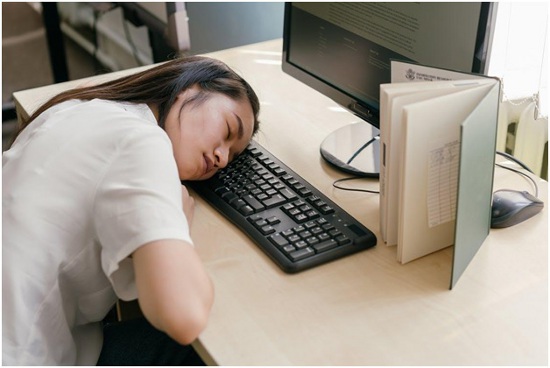What is sleeping at work?
In recent years, sleeping at work has become more acceptable and even encouraged by many employers. Studies show that many office workers nap on the job, which can be beneficial for productivity. However, sleeping on the job is against the law, and if you’re employed, you shouldn’t do it. It’s against your contract and can lead to dismissal, even if you’re not guilty of a crime. While falling asleep at work can be embarrassing, it’s not something to be ashamed of. If you have a desk job and are not allowed to take a nap, you should consider taking a nap during your breaks.
The pros of sleeping at work
While it’s true that a napping employee may have an advantage, it can also cause a work environment to suffer. The fast pace of our workplaces can often make it difficult to get the restful sleep we need. If you can’t afford to take a nap during the day, you can always sleep at home or in a public place. The cons of sleeping at work include:
- Possible legal consequences;
- The inability to concentrate during a nap;
- It can be embarrassing to the boss if you are caught by the boss; and
- The cost of a late nap.
One pro of sleeping at work is that it reduces the amount of the stress hormone cortisol in your body. This helps you focus and stay alert during the day. It also prevents workplace conflict, as tired employees are grumpy and prone to errors. Another pro is that you can sleep without disturbing your colleagues, preventing anyone from catching you in the act. If you want to nap, you can sleep at your desk if you have a desk that can be converted into a bed. You can also install a curtain to make your workspace more private.
The cons of sleeping at work
Although many sleep experts recommend sleeping at work, it has many cons. Some companies have policies against it. If you do, you’ll lose productivity and be less creative. Other employers have no such policy. In some offices, a quiet corner is reserved for napping. A nap in the office may not be a good idea for your boss. If you feel this is the case at your office, talk to someone in charge of employment law before taking a nap in the office. It might also help if other companies hire your staff, as they think that you’re a ” lazy” company. The disadvantages of sleeping at work include the possibility of losing productivity. One of the biggest drawbacks of sleeping at work is that you’ll be inconvenient.
Sleeping at work: is it right for you?
Are you a heavy-duty worker? If so, you may want to consider napping at work. Many companies have rules against this. In addition to being against the law, you risk losing your job if you nap on the job. Some employers are even willing to fire you for this. Check with your HR department to learn what the rules are. You can also make an effort to use napping rooms in the workplace. Some offices have designated areas for taking naps. If you’re not allowed to nap in the office, try to find a quiet spot. If you’re working at home, you can find another quiet place to take a nap. You can also try napping during your breaks, but never at your desk. It’s better to nap in other places, like at lunchtime or during mandatory events, so that you can concentrate on your tasks.
You can avoid it by aligning your schedule to circadian rhythm
Your circadian rhythm is influenced by light, temperature, and other external cues, including your job and your schedule. Here are tips to reset your sleep cycle and get the best night’s sleep.
- Avoid using electronic devices or watching TV an hour before bed. Alternatively, you can turn off your computer or phone when you go to bed. This can help you get a better night’s rest.
- It may take some time to adjust to the new schedule, but by paying attention to your energy levels and arranging your activities around these periods, you can avoid this common problem.
- Depending on your energy levels, you may find that your body is less energetic when you exercise close to bedtime. To counteract this issue, you should aim to get enough sleep during the day. The longer you stay in bed, the better you’ll feel in the morning.
- Besides being physically healthy, exercising daily can improve the quality of your sleep. If you can do your workout close to bedtime, it will help your body to reorient its circadian rhythm, thus giving you more strength and endurance.
Healthier habits can make more energy and active
The following tips can help you build healthier habits:
- First, determine what is causing your laziness. If you’ve been sitting in front of your computer or watching TV all day, you may need to change your habits.
- Taking a walk around the block every day will increase your energy levels and improve your overall well-being.
- Healthy food is an important part of any healthy diet. However, you need to watch your portions. It’s significant to get the recommended amount of daily calories, which is around one to two servings of fruit or vegetables. Additionally, you should limit your consumption of sugary and fatty foods. You should also reduce your intake of caffeine and alcohol, as well as drink more water. This will help you stay active and focused throughout the day.
Conclusion
The Pros And Cons of Nap Desks Most offices have conference rooms, but it’s hard to nap in there. You need to train your coworkers and make sure they understand your needs. If your workplace has a nap room, you can nap on it if you wish, but most cubicles have a door that doesn’t open.


















